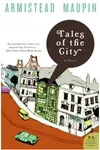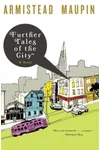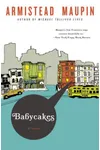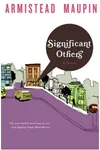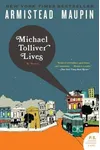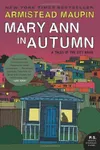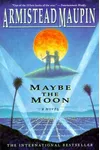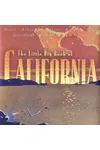Picture a storyteller who spun a vibrant tapestry of San Francisco’s bohemian heart, blending humor, heart, and groundbreaking queer representation—meet Armistead Maupin! Born in 1944, Maupin is the beloved author of the Tales of the City series, a cultural touchstone that captured the free-spirited 1970s and reshaped how we see chosen families and LGBTQ+ lives.
From his Southern roots to his trailblazing novels, Maupin’s journey is as colorful as the characters he created. His work, serialized in newspapers before becoming bestselling books, invites readers into the quirky, warm world of 28 Barbary Lane, where love, identity, and adventure collide.
The Making of Armistead Maupin
Born on May 13, 1944, in Washington, D.C., and raised in Raleigh, North Carolina, Armistead Maupin grew up in a conservative Southern family. A graduate of the University of North Carolina, he wrote for the college paper, hinting at his storytelling flair. After serving in the U.S. Navy, including a tour in Vietnam, Maupin’s worldview shifted. Moving to San Francisco in 1971, he joined the Associated Press, but it was the city’s vibrant counterculture that sparked his literary career.
Maupin came out as gay in 1974, a pivotal moment that shaped his authentic voice. Inspired by the city’s diversity, he began writing Tales of the City as a serial for the Pacific Sun, later moving to the San Francisco Chronicle. His knack for blending real-time events with fiction made his stories feel alive and urgent.
Armistead Maupin’s Unforgettable Stories
Maupin’s Tales of the City series, spanning ten novels from 1978 to 2024, is his crowning achievement. The first book, Tales of the City (1978), introduces Mary Ann Singleton, a naive newcomer, and Anna Madrigal, the enigmatic transgender landlady of 28 Barbary Lane. With sharp dialogue and interwoven plots, Maupin crafts a soap-opera-style saga that’s both hilarious and heartfelt.
Babycakes (1984) broke ground as one of the first novels to address the AIDS crisis, blending humor with raw emotion. Michael Tolliver Lives (2007) revisits a beloved character, exploring aging and resilience, while The Days of Anna Madrigal (2014) wraps the series with a poignant look at legacy. Outside the series, Maybe the Moon (1992) follows a dwarf actress with wit and grit, showcasing Maupin’s versatility.
His style—conversational, witty, and deeply human—turns San Francisco into a character itself. Maupin’s themes of chosen family, identity, and acceptance resonate universally, earning him a devoted following. His ability to weave real-life figures like Rock Hudson (a friend) into his narratives adds a playful, insider charm.
Why Armistead Maupin Matters
Maupin’s work transformed LGBTQ+ representation in literature. Before Tales of the City, queer characters were often tragic or stereotyped; Maupin gave them joy, complexity, and community. His inclusive storytelling drew readers to San Francisco, seeking the vibrant world he depicted. The series’ TV adaptations (1993, 1998, 2001, and 2019 on Netflix) amplified his impact, with stars like Laura Linney and Olympia Dukakis bringing his characters to life.
As an activist, Maupin championed gay rights, mentoring younger writers and advocating for authenticity in casting, as seen in the 2019 Netflix series. His memoir, Logical Family (2017), offers a candid look at his evolution from conservative roots to queer icon, inspiring readers to embrace their truths. At 80, living in London with his husband, Christopher Turner, Maupin remains a literary legend.
- Born: May 13, 1944, Washington, D.C.
- Key Works: Tales of the City, Babycakes, Michael Tolliver Lives, Logical Family
- Awards: Barbary Coast Award (2007), PBS Great American Read Top 100 (Tales of the City, 2018)
- Fun Fact: Maupin’s 28 Barbary Lane is inspired by San Francisco’s Macondray Lane!
Ready to dive into Maupin’s world? Snag Tales of the City and get lost in the wit and warmth of 28 Barbary Lane!
